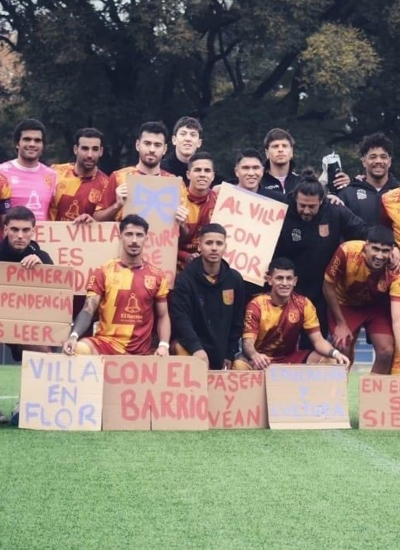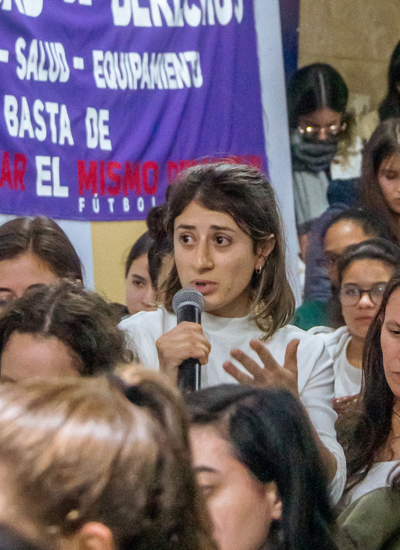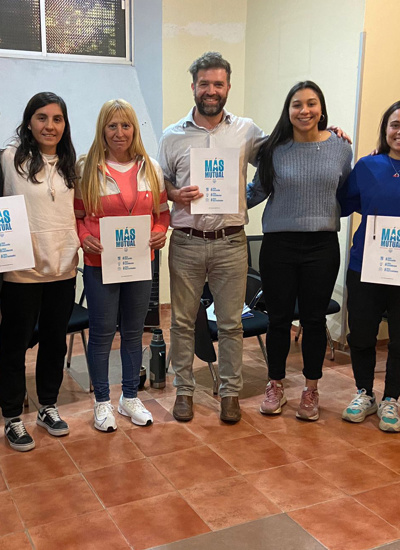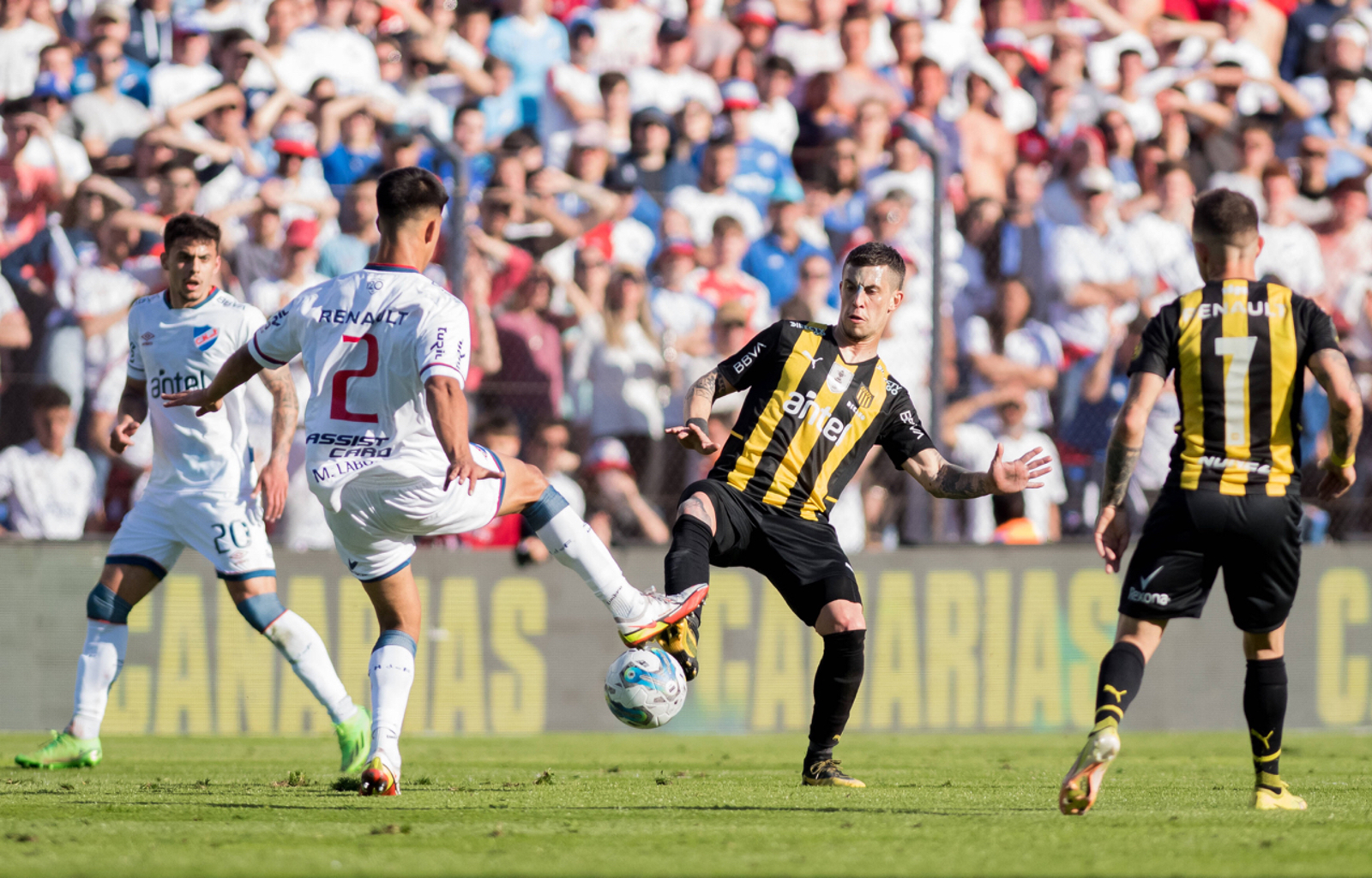
- Uruguayan Professional Footballers' Union (MUFP) unanimously decide not to play on weekend of 8/9 September
- An updated and approved collective agreement to that signed in 2007 is the objective
- "Wages, especially in the second division, are quite low," says MUFP General Secretary Mitchell Duarte
In the early hours of Thursday 7 September, the Uruguayan Professional Footballers' Union (MUFP), decided "unanimously" not to participate in the weekend's matches in Uruguay's top two men's divisions.
The measure of force, which does allow training, seeks the approval of a new collective bargaining agreement. The MUFP has been trying to negotiate for several months with the Uruguayan Football Association (AUF) and the Professional Football Council, made up of the 16 First Division clubs and the 14 Second Division clubs.
FIFPRO spoke with MUFP General Secretary Mitchell Duarte to find out more about the conflict and the union's quest for the labour welfare of Uruguayan footballers.
FIFPRO: What are the reasons for the extreme measure of not playing this weekend?
Mitchell Duarte: We have been in collective bargaining for 22 months and, to date, we are still waiting for a response from the clubs. We understand that we have gone down the necessary road at the necessary time. We need to take this kind of action to focus attention and to achieve a defined outcome.
Who are the main victims of the failure to update the collective bargaining agreement?
The biggest difficulties we have encountered are in the salary increase in the Second Division. That has been the central focus of much of the discussion, but the strike covers all professional divisions.
So Primera footballers, from important clubs such as Penarol or Nacional, supported the measure even though they were not the main focus of the problem?
Yes, it is a unanimous decision.
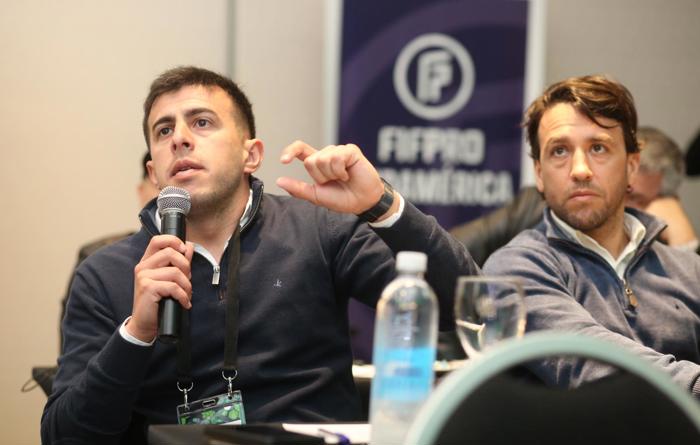
Uruguay was a pioneer in the region on issues related to collective bargaining, but today they are not up to date with FIFA regulations. What is the most urgent update?
Wages, especially in the second division, are quite low. There has been no real wage increase since 2007, and we have remained in this situation for a long time. Despite the updates through the FIFA regulations and statutes, we still have a collective agreement that dates back sixteen years, and we are quite behind in a lot of aspects - there are a lot of regulations that need to be brought up to date. This is something that concerns us. There may be a lot of arguments and reasons why this is happening, but we are behind in terms of management, infrastructure and income. Very bad decisions have been taken for a long time and this has led to a deficit situation and we are immersed in a vicious circle. Obviously, this means that any type of modification has to be discussed at this level and for this length of time. This obviously creates a lot of difficulties for our profession.
There are rumours that clubs could stop players from going to training, or not pay their salaries. Are you alert to this possibility?
We are foreseeing the measure. Since we took the measure only today (September 7), we have had no contact with the clubs, but we are legally prepared to deal with this situation.
Uruguayan football has several issues on the table such as the creation of the professional league, the use of image rights, the sale of TV rights, etc. How much does this influence the delays with the collective bargaining agreement?
Issues are mixed up. They have nothing to do with this negotiation that we are conducting on labour relations. The ones mentioned are put on the table as bargaining chips, but we have absolutely nothing to do with them and that is not what we are negotiating. That should be worked on in another sphere and under other conditions. This is being put on the table to distract attention and obviously for the clubs to achieve certain objectives that have nothing to do with this collective bargaining process.

What are the next steps?
We will get back together with the committee, understand which are the points for which the agreement has not been approved, and solve them in order to resume the normal course of activity. But until this is solved, it is very difficult for the activity to return.
In 2022, you also took action to improve the conditions and safety protocols for football players. How did this aspect evolve with the intervention of the Mutual?
In terms of infrastructure and working conditions, there has been considerable improvement. Yes, we still have some deficits in some teams, but in general terms, although it is slow, there has been growth and supervision, a more detailed monitoring of the particularities of each institution. In fact, this year, for example, we are not allowing tournaments to be played in four or five venues that do not have the minimum and basic conditions, and we are constantly monitoring this. I would take this as a positive point in which we have made progress but also understanding that there is still a lot of work to be done in these situations.
